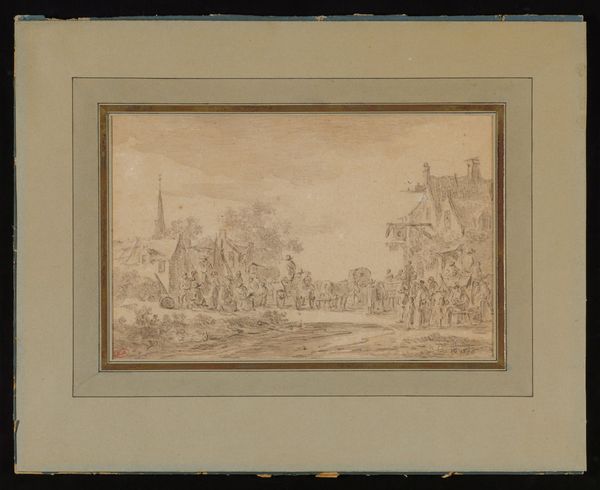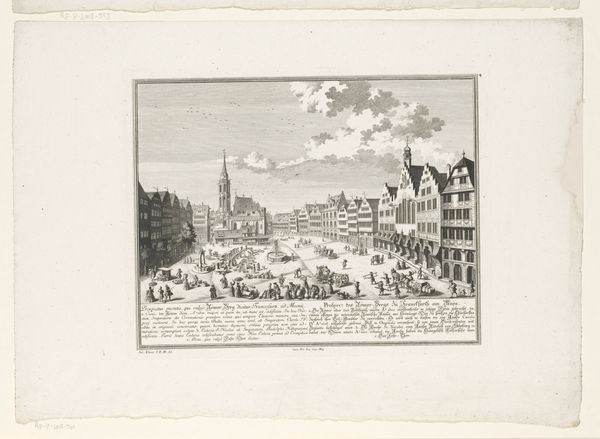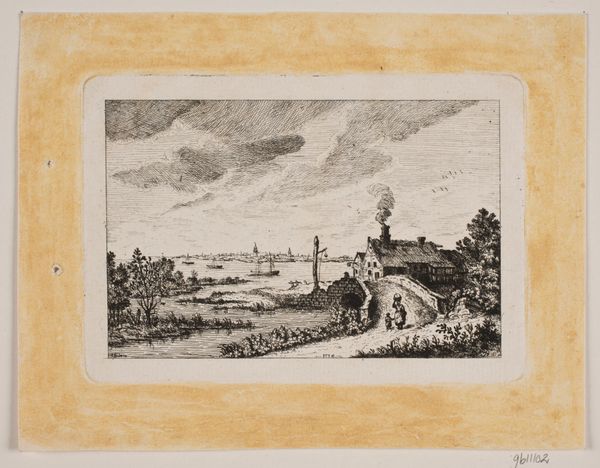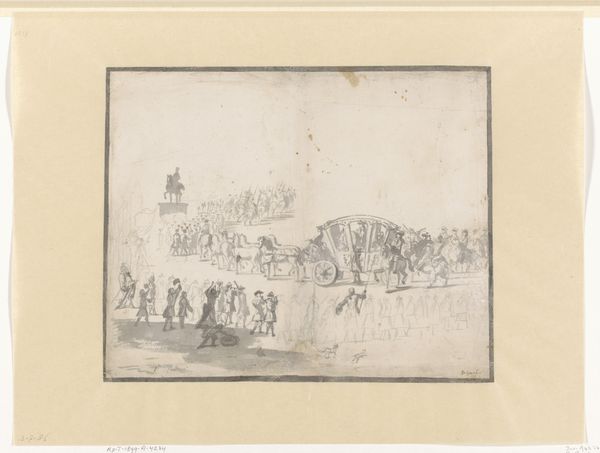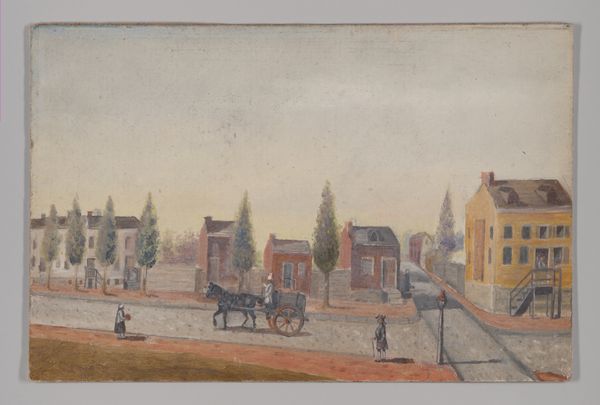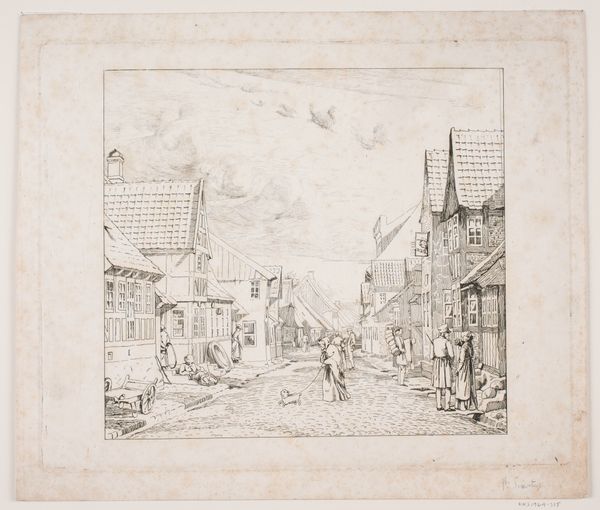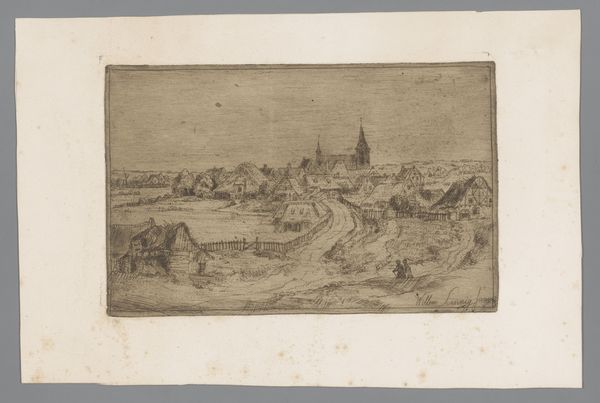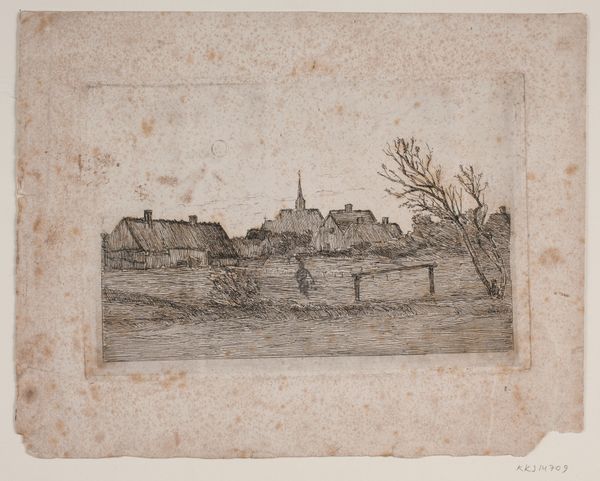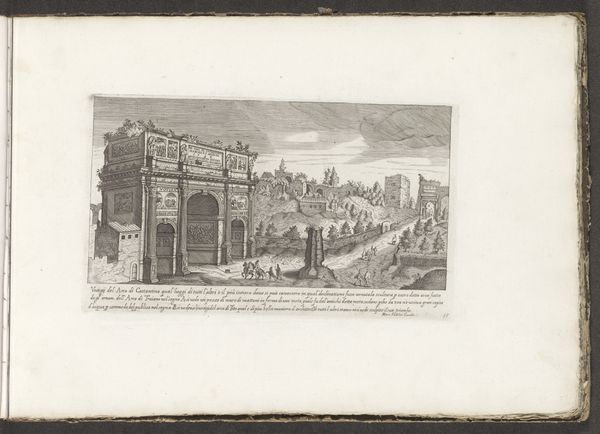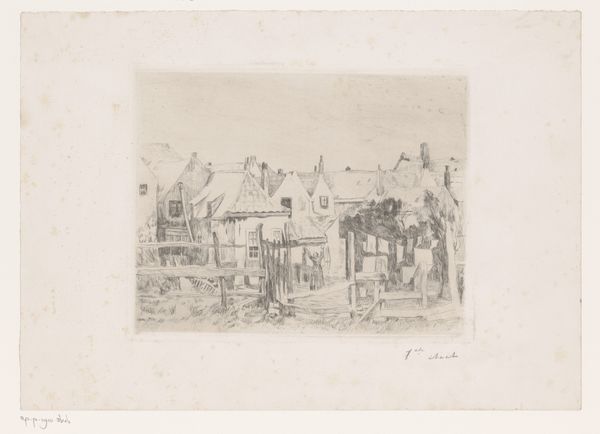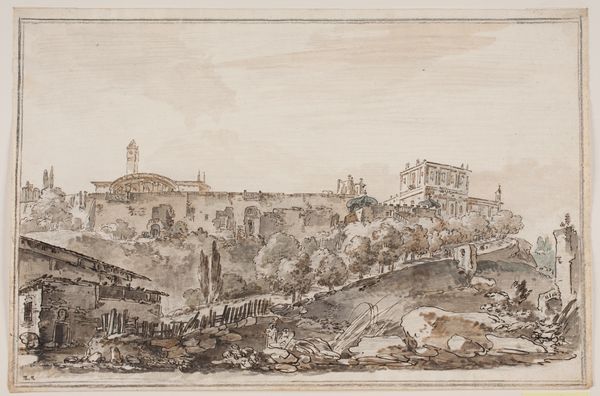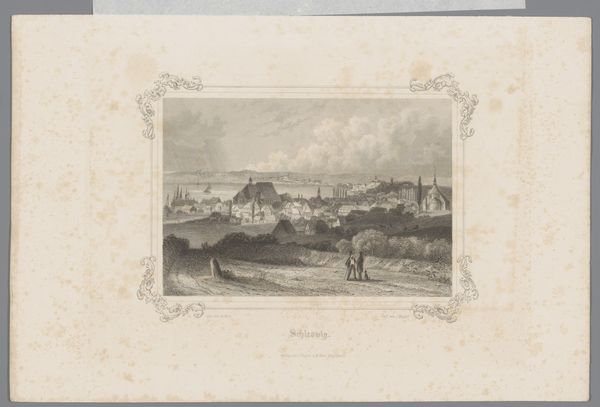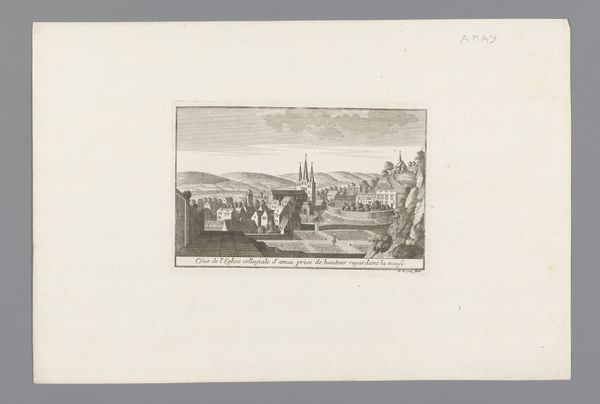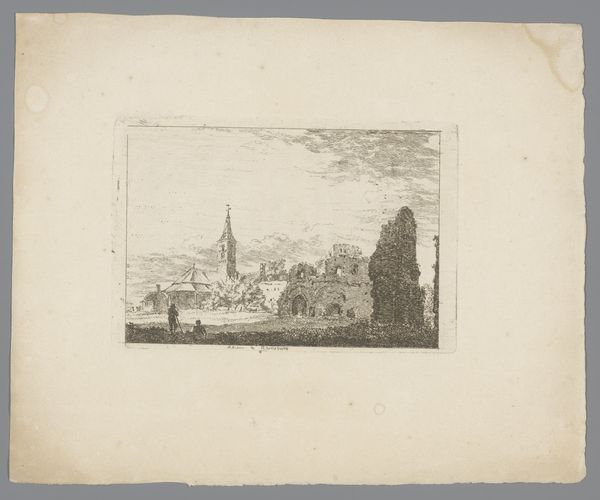
Dimensions: height 420 mm, width 490 mm, depth 20 mm
Copyright: Rijks Museum: Open Domain
This image presents a cityscape, its focal point a commanding figure on horseback. In the context of civic imagery, this equestrian motif bears the weight of leadership and authority, echoing classical depictions of emperors and triumphant generals. Consider how this symbol resonates across time, from ancient Roman equestrian statues to Renaissance portraits. The horse, a potent symbol of power and control, becomes a vehicle for conveying status and dominance. Yet, the portrayal here lacks the dynamism of, say, a Delacroix. The figures stand static, a sense of subdued energy pervades. The collective memory of such images influences our perception, imbuing the scene with an aura of established order. The psychological impact is subtle, evoking a sense of reverence for the status quo. It highlights the enduring power of symbols to shape our understanding, subtly influencing our emotional response to authority, even in the absence of explicit grandeur. The symbol’s persistence through history speaks to our subconscious desire for stability.
Comments
No comments
Be the first to comment and join the conversation on the ultimate creative platform.
